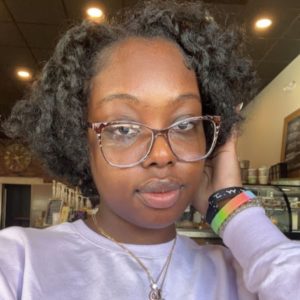
My choices for what to do after college were very scarce–I was expected to enroll in an Ivy League school or a university, there was no in-between. The common ground those two options share is the demographic of white students that populate most colleges. A predominately white institution (PWI) is a college or university where 50% of the students and faculty are White. Being a minority in an environment that sets me apart from other students affected many areas of my basic needs. Minorities deserve an education that doesn’t put their education, housing, or mental health at risk simply because of their skin color.
I was exposed to many hardships as a freshman in college. Spending another four years in school wasn’t the issue. It was the fact that I am now growing up in an environment where I’m not going to see many people that look like me. It’s dealing with the fact that I have to settle with being the only black woman in a classroom and tolerate the lack of inclusivity and diversity of Black faculty in my institution. One of the challenges that arise in predominantly white institutions is the division between white and black students. All students attend college simply to get a degree and be prepared to work in the real world, but the tools necessary for each student to graduate aren’t accessible to every student. These institutions should model how important employment and involvement in work and education are to everyone.
However, predominantly white institutions tend to provide misinformation to black students on these matters and fail to assist them on how to be in those positions. There have been many case studies that prove that Black students or faculty carry the burden of implementing diversity in predominantly white institutions. Being stripped of these resources is unfair to black people as a student and overall human being who is trying to pave their way to success. This can be draining and unmotivating to Black students who simply want a fair education as their peers.
I believe that the NYC Assembly owes black students a space where they feel like they can be supported and respected as a person. I support Assembly Bill A04142, which allows CUNY and SUNY campuses to consult a mental health counselor within their campus. Implementing Black staff members allows Black students to confide in someone with similar features and experiences. Allowing students to have access to a mentor and be involved in mentorship gives them equal opportunities for employment and assistance, especially students like me who are going to need that guidance. It’s important to acknowledge that black students can feel lost and misguided in these institutions, and the last thing they need to feel is neglected by people who have the power to help them.
Sarah Dorme is a first-year student at SUNY Oswego, and grew up in a suburban Nanuet, New York, a town in Rockland County. She is 18 years old and currently in a five-year program pursuing a Bachelors in Psychology and Masters in Business Administration. Her interests lie in school extracurriculars, such as mentorship programs, writing societies, and reading books and articles online. Her goal is to become a mental health counselor or work with nonprofit organizations to do research and spread awareness on social and economic issues through her writing. A few of Sarah’s passions are advocating for mental health, and addressing racial and social injustices. Since high school, Sarah saw the lack of mental health resources in her community. After participating in the Project Lift Me Up mental health study, she decided to research ways to assist her local community and all New Yorkers, especially low-income families and students, with healthcare and mental health resources. Sarah saw how destructive and discriminatory the world has been towards minorities. Police shootings, minimal resources for online students, and rising deaths in her town alone was enough to motivate her to take action by sharing her writing on social media. She was able to amplify her voice and address racism towards minorities through poetry and online articles. She wishes to use her voice and incorporate her writing in conversations centered around protection towards minorities, women, and people in need. As a Young Advocate, she hopes to learn how to take on leadership roles and change the psychology and business fields.
